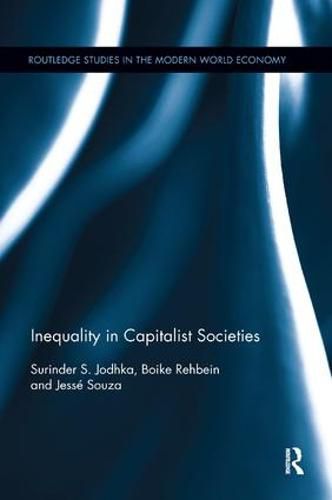Readings Newsletter
Become a Readings Member to make your shopping experience even easier.
Sign in or sign up for free!
You’re not far away from qualifying for FREE standard shipping within Australia
You’ve qualified for FREE standard shipping within Australia
The cart is loading…






Inequality is one of the most discussed topics of our times. Yet, we still do not know how to tackle the issue effectively. The book argues that this is due to the lack of understanding the structures responsible for the persistence of social inequality. It enquires into the mechanisms that produce and reproduce invisible dividing lines in society. Based on original case studies of Brazil, Germany, India and Laos comprising thousands of interviews, the authors argue that invisible classes emerge in capitalist societies, both reproducing and transforming precapitalist hierarchies. At the same time, locally particular forms of inequality persist. Social inequality in the contemporary world has to be understood as a specific combination of precapitalist inequalities, capitalist transformation and a particular class structure, which seems to emerge in all capitalist societies. The book links the configurations to an interpretation of global domination as well as to symbolic classification.
$9.00 standard shipping within Australia
FREE standard shipping within Australia for orders over $100.00
Express & International shipping calculated at checkout
Inequality is one of the most discussed topics of our times. Yet, we still do not know how to tackle the issue effectively. The book argues that this is due to the lack of understanding the structures responsible for the persistence of social inequality. It enquires into the mechanisms that produce and reproduce invisible dividing lines in society. Based on original case studies of Brazil, Germany, India and Laos comprising thousands of interviews, the authors argue that invisible classes emerge in capitalist societies, both reproducing and transforming precapitalist hierarchies. At the same time, locally particular forms of inequality persist. Social inequality in the contemporary world has to be understood as a specific combination of precapitalist inequalities, capitalist transformation and a particular class structure, which seems to emerge in all capitalist societies. The book links the configurations to an interpretation of global domination as well as to symbolic classification.